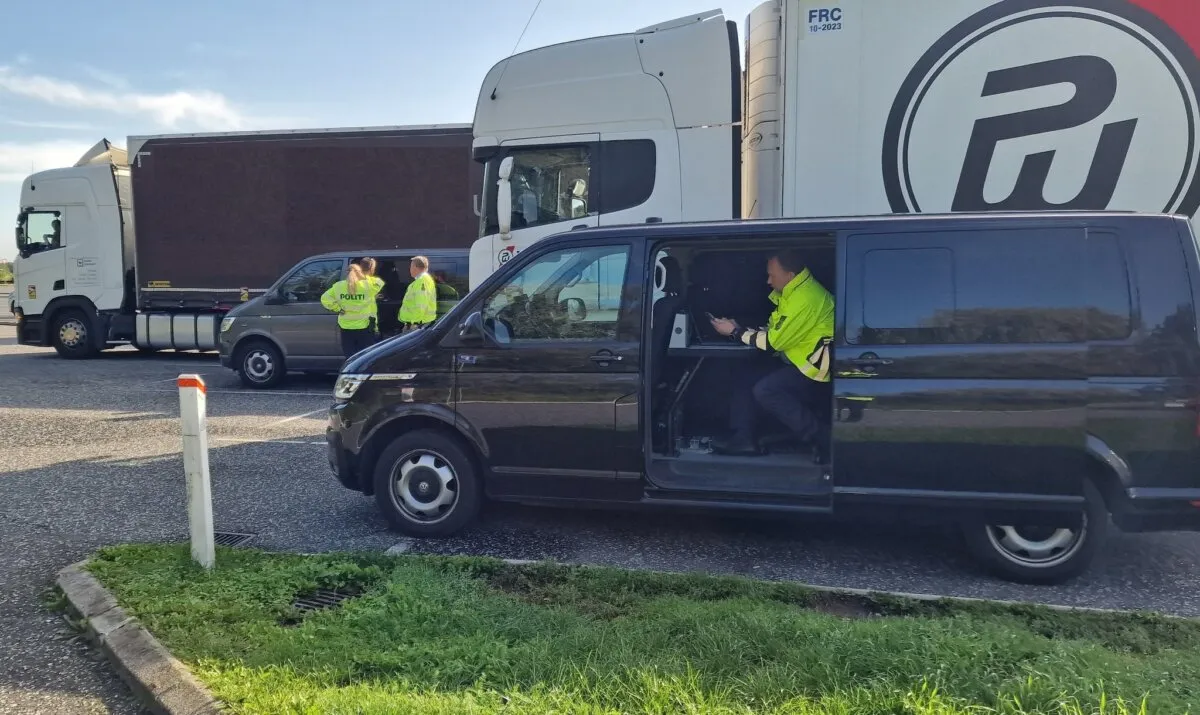One of the most significant changes is the removal of the rigid requirement to carry a CMR consignment note for every unladen journey. Under the new rules, documentation confirming such transport may be provided in alternative forms, depending on the circumstances and nature of the transport operation.
“At the same time, the Authority clarifies that the collection and transport of, for example, returnable pallets may be part of a cabotage or international transport operation – provided it constitutes a natural part of the route and there is a clear connection with the preceding or following journey,” notes the Danish forwarding association Danske Speditører.
Alignment with EU standards
The changes come in response to longstanding criticism from Danske Speditører, which has repeatedly argued that Danish enforcement practices on cabotage diverge from the European Commission’s interpretation of the rules. As early as 2022, the Commission found some aspects of Denmark’s approach to be incompatible with EU law. The Danish Transport Authority made initial adjustments in 2023, but this year’s update fully incorporates the industry’s key demands.
In case you missed it: No pay, no passage: Denmark cracks down on toll dodgers
More flexibility and support for efficient, sustainable transport
In addition to easing documentation requirements, the new guidelines encourage a more practical and flexible approach to real-world transport conditions. According to Danske Speditører, these changes will improve legal clarity and better align national regulations with the realities of the European market. Carriers can now operate with greater legal certainty, resulting in smoother logistics and more efficient use of transport resources.
The updated guidelines also include practical examples to aid interpretation of the new provisions – particularly concerning unladen journeys (see section 3.2).
Requirements for genuine transport operations
The revised guidelines clarify that the mere transport of empty containers or other returnable packaging (e.g. pallets) to Denmark does not entitle the operator to perform cabotage, unless it forms part of a so-called “genuine transport operation”. This means the journey must be part of an actual transport order or be governed by a separate agreement and payment.
To illustrate this, the agency provides the following examples:
- Genuine transport operation:
A German lorry transports an empty container from Hamburg to Esbjerg. A consignment note has been issued for the journey, and the container is the subject of a transport contract or an integral part of one. - Non-genuine transport operation:
The same German vehicle carries an empty container from Hamburg to Esbjerg, but there is no separate payment or formal transport contract in place.
This distinction has important legal implications and determines whether the operation qualifies as lawful cabotage under Article 8(2) of Regulation (EC) No 1072/2009.
Further reading: The end of absurdity in Danish parking areas: Controversial truck restriction to be abolished
Specific requirements for cabotage operations
The transport of empty containers, semi-trailers, or returnable packaging by a foreign haulier within Denmark is regarded as goods transport – and thus as a cabotage operation – if it is carried out under a transport contract and forms the principal subject of the order and/or payment, the Authority explains.
However, if such unladen movements are an integral part of a preceding or subsequent cabotage or international transport operation, they are not treated as separate cabotage activities – provided that appropriate documentation exists (such as a consignment note or relevant annotations). In the absence of such documentation, they are by default considered separate cabotage operations.
The Danish Transport Authority illustrates this with several examples:
- Example 1:
A Dutch truck delivers tulips from Groningen to Ribe. It then picks up 50 empty flower racks and transports them to Esbjerg, where cabotage begins – delivering the racks and loading new flower consignments bound for Holstebro. After unloading, the truck returns to the Netherlands. If the carrier can document that the empty racks are part of an intercompany return system, the whole sequence is treated as a single cabotage operation. - Example 2:
A German truck unloads fruit in Odense, then collects 52 empty pallets from a warehouse and drives to Nyborg, where it begins cabotage to Næstved. After unloading, it returns to Germany empty. With appropriate documentation linking the pallet transport to the cabotage operation, the entire activity is deemed a single cabotage operation. - Example 3:
Following international transport from Flensburg to Aarhus, a lorry runs empty to Herning to collect furniture and 10 returnable pallets. Some of the load is delivered in Skanderborg, the rest in Horsens. The entire operation is treated as a single cabotage activity, provided that the connection between the pallets and the transport is documented. - Example 4:
A Polish vehicle delivers meat to Grindsted, then picks up 50 empty racks and drives to Vejle, from where it returns to Poznań with a flower consignment. If the empty racks form part of a return system between businesses, the movement is not regarded as a separate cabotage operation. - Example 5:
A German lorry travels unladen from Padborg to Holstebro to swap an empty trailer for a loaded one, and returns to Padborg under cabotage. The movement of the empty trailer is considered a preparatory leg of the cabotage, not a separate operation.
In addition, the transport of empty containers and returnable packaging following an international delivery to Denmark is not considered cabotage, provided it is carried out under the transport contract – for example, transporting an empty container from the unloading point to the destination indicated in the order.
In case you missed it: Company fined £220,000 after director fatally injured by reversing HGV











